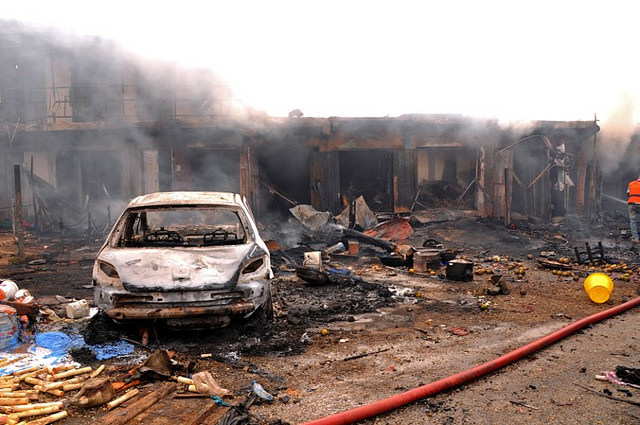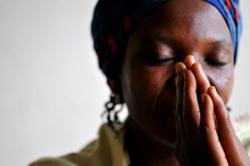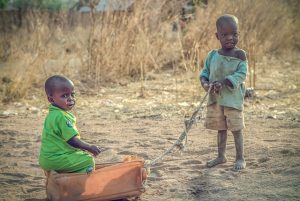
Nigeria (MNN) – Up until the Chibok school girls were kidnapped by Boko Haram in 2014, it’s safe to say that most of the world had never heard of the militant extremist group. You might remember the social media tag, #bringbackourgirls. However, the militant group has been around since the early 2000s. And a recent uptick in violence has proven once again how ruthless Boko Haram is.
If you look at the timeline of attacks from this year alone, you’ll see that the bloodshed is constant. This month is no different. On Saturday, Boko Haram militants tried to infiltrate a region near the state capital of Borno but were thwarted by a Nigerian military operation on Wednesday. The military killed 14 of the Boko Haram militants but not before they killed three soldiers. Just last week, Boko Haram beheaded six farmers. And then, a suicide bomber walked into a mosque and killed nearly 60 Muslims. And the bomber? He was just a kid.
In fact, it seems as though Boko Haram’s use of child suicide bombers is becoming more common. Already by August, UNICEF was recording a child suicide bombing rate four times that of 2016. From January 1st to August 22nd, at least 83 children had been sent as bombers—most of them girls.

(Photo courtesy of Open Doors USA)
The president of Nigeria, Muhammadu Buhari, says the recent onslaught of child suicide bombings and other attacks is a sign that Boko Haram is on its way out. He compared the attacks to the ‘last kicks of a dying horse.’ In other words, the attacks may be powerful and damaging, but they signal the end.
Todd Nettleton of the Voice of the Martyrs USA says, “Well it’s interesting that the president of Nigeria is calling these sort of the ‘dying kicks of a dying horse’ — that this is kind of Boko Haram’s last-gasp efforts to show that they still have some relevancy, to show that they still have some power.
“I think for those who are living in Nigeria and living in the danger of these attacks, though, they look at it and say, ‘whether it’s the dying kicks or whether they’re alive and well, we need to respond. We need to take care of this.’ And the government of Nigeria has promised to do that, and I think they have made strides, but Boko Haram is certainly something that the people in northern Nigeria are still concerned about.”
There are reasons that we cannot simply wait for Boko Haram to die out and leave the region in peace. One is the group’s allegiance to ISIS and the second is their undying ideology.
“They certainly have in mind to set up their own version of the caliphate in northern Nigeria—to have an Islamic state, an Islamic country, a place where Islamic Sharia law is the controlling, ruling law within that region,” Nettleton says.
This goal is at odds with the Nigerian constitution and many nations including Nigeria have vowed that they will not let Boko Haram succeed. Nettleton says the group continues to use violence as a way to gain more control.
You may have heard that the name “Boko Haram” more or less condemns western influences. Groups like Boko Haram often include Christianity in with other markers of western culture. But, like the ISIS-linked terrorist group in Egypt, extremists will target anyone who stands in their way.
 Nettleton says, “Christians are certainly at risk, but they’re not the only ones at risk. Boko Haram has killed thousands of Muslims. They have attacked government buildings as well as churches and Christian activities in the region. So they would see all of those—whether you’re, say, a Shia Muslim or a Christian or a government employee—all of those are considered enemies by Boko Haram.”
Nettleton says, “Christians are certainly at risk, but they’re not the only ones at risk. Boko Haram has killed thousands of Muslims. They have attacked government buildings as well as churches and Christian activities in the region. So they would see all of those—whether you’re, say, a Shia Muslim or a Christian or a government employee—all of those are considered enemies by Boko Haram.”
While Nigeria’s government continues to grapple with the problem of Boko Haram, there are ways you can take action to support peace in Nigeria. Nettleton says, we can pray:
“We want to pray for the protection of our Christian brothers and sisters, certainly. We also want to pray that they would continue to be bold witnesses for Christ. It would be easy in a situation like that where there is danger to sort of fold in and kind of hunker down …. we need to pray that they will still have that spirit of boldness in reaching out, reaching even their enemies with the Gospel message because that’s what Christ called us to do.”
To learn more about the Voice of the Martyrs and how you can partner with them, click here.
Header photo courtesy of Diariocritico de Venezuela via Flickr.
